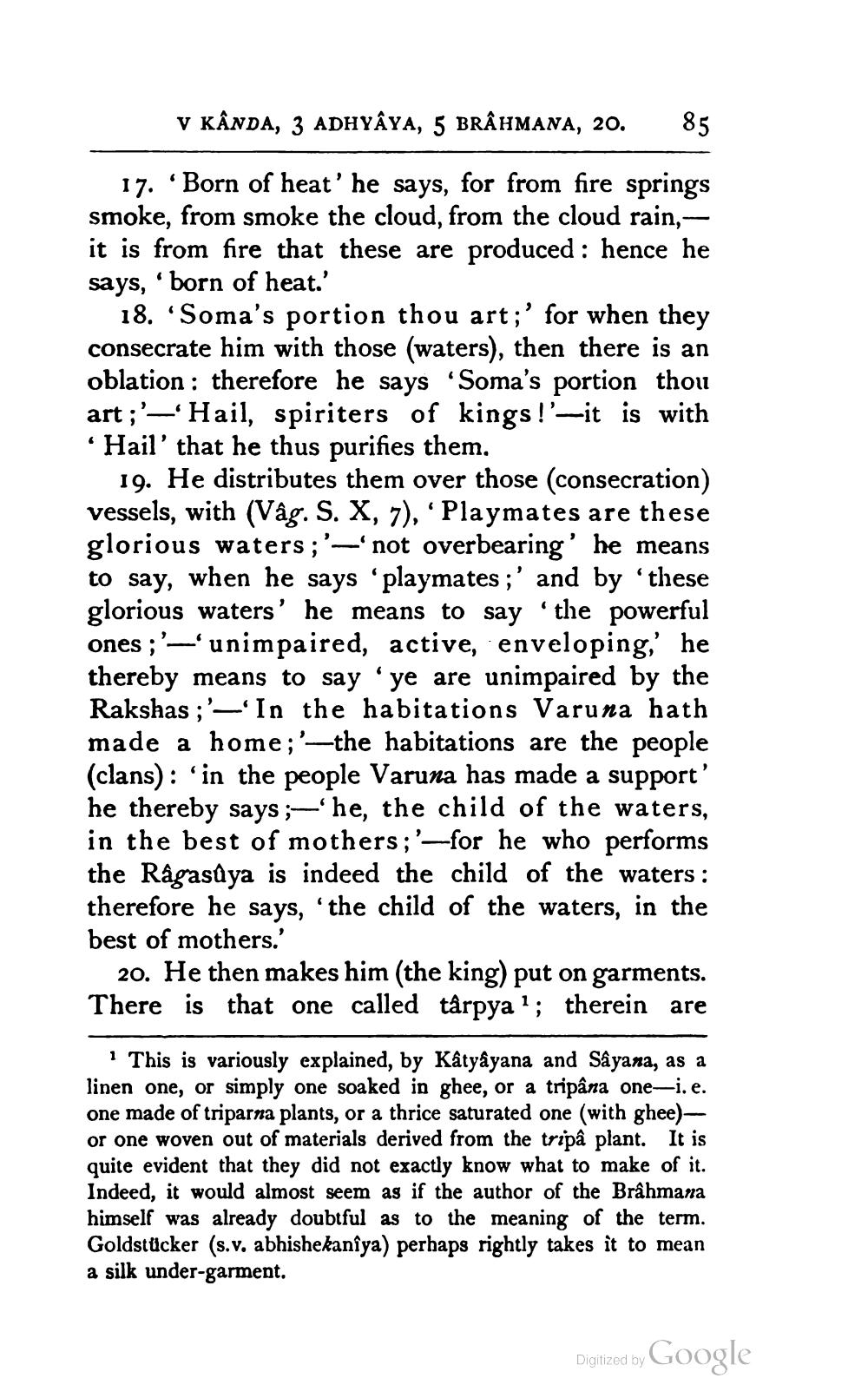________________
V KÂNDA, 3 ADHYAYA, 5 BRÂHMANA, 20.
85
17. 'Born of heat' he says, for from fire springs smoke, from smoke the cloud, from the cloud rain,it is from fire that these are produced : hence he says, 'born of heat.'
18. 'Soma's portion thou art;' for when they consecrate him with those (waters), then there is an oblation : therefore he says 'Soma's portion thou art;'-Hail, spiriters of kings !'-it is with * Hail' that he thus purifies them.
19. He distributes them over those (consecration) vessels, with (Vâg. S. X, 7), 'Playmates are these glorious waters; '--'not overbearing' he means to say, when he says 'playmates ;' and by these glorious waters' he means to say 'the powerful ones ; '-—'unimpaired, active, enveloping,' he thereby means to say 'ye are unimpaired by the Rakshas ;'-'In the habitations Varuna hath made a home;'—the habitations are the people (clans): 'in the people Varuna has made a support' he thereby says ;-he, the child of the waters, in the best of mothers; '--for he who performs the Râgasûya is indeed the child of the waters : therefore he says, 'the child of the waters, in the best of mothers.'
20. He then makes him (the king) put on garments. There is that one called tårpya 1; therein are
1 This is variously explained, by Katyayana and Sâyana, as a linen one, or simply one soaked in ghee, or a tripâna one-i.e. one made of triparna plants, or a thrice saturated one (with ghee) - or one woven out of materials derived from the tripâ plant. It is quite evident that they did not exactly know what to make of it. Indeed, it would almost seem as if the author of the Brâhmana himself was already doubtful as to the meaning of the term. Goldstücker (s.v. abhishekanîya) perhaps rightly takes it to mean a silk under-garment.
Digitized by Google




